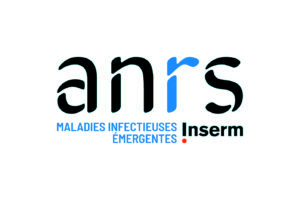About
Control of the COVID-19 emergence in Europe including France was achieved by a combination of initial reduction of transmission via containment policies of variable stringency and, one year later, strongly incentivised high uptake of COVID-19 vaccines. Although successful, this experience has revealed the challenge to control emerging infectious diseases while adhering to public health good-practice, including for example, fostering confidence between members of the society and limiting social inequalities.
The ACMÉ project aims to promote – through epidemic preparedness – the development and implementation of effective, acceptable and accessible preventive counter-measures (PCMs) including vaccination, by confidence-building and inclusive strategies, communication and organisation, specifically during outbreaks and epidemics of (re-)emerging infectious diseases in France.
Our project is situated in Axis 2 (Knowledge, expertise, communication) of the Research Programme on Emerging Infectious Diseases (PEPR MIE), steered by the French National Agency on Emerging Infectious Diseases (ANRS | Maladies infectieuses émergentes) . It seeks to better understand the key factors that influence the acceptance and physical and psychological accessibility of various PCMs in epidemic situations, and will recommend approaches for the translation of available and new evidences into public health action.
We identified four interrelated ACMÉ key themes that we hypothesize to be pivotal to achieving high PCM acceptability and accessibility during epidemic crisis: 1) effectiveness of programmes; 2) confidence in the wider system and its barriers – reactance, politicisation, conspiracy; 3) healthcare workers – their attitudes, training and involvement; and 4) involvement of the local level in communication and organisation.
In accordance with its four objectives, the ACMÉ project will consist of four interconnected scientific work packages, supported by ongoing management and coordination by the Institut Pasteur. The ACMÉ consortium encompasses various social and behaviour science disciplines (anthropology, psychology behavioural economics,) and combines them with relevant public health and biomedical expertise (health promotion, epidemiology, and infectious disease medicine). All partners have previously demonstrated strong expertise in their fields and have experience in fundamental and multidisciplinary public health research.
Our 3 years work plan includes iterative extensive consultations of stakeholders (national, regional and local authorities and actors, social science and biomedical experts, healthcare workers and civil society representatives). The ACMÉ project will create opportunities to make connections with other social science research projects and with future PEPR MIE projects addressing infectious disease emergence, in particular those developing vaccines and preventative interventions
Project objectives
The general objectives of the ACMÉ project will be to:
1. Assess the determinants, facilitators and barriers of uptake/adherence, confidence and social equity regarding PCMs in epidemic situations in France, and identify approaches to monitor these factors for epidemic preparedness.
2. Develop potential scenarios of epidemic diseases and relevant PCMs, and evaluate, using choice-based methods, the preferences of the general population, specific subgroups and HCWs around potential strategies and programmes.
3. Prepare interventional research on confidence-building and inclusive PCM programmes in epidemic situations, by identifying evaluated experiences internationally and evaluate their transferability to France and to epidemic situations.
4. Develop recommendations and elaborate pre-protocols (blueprints) for rapid implementation of interventional research in future emergencies, and prepare roadmap for active transfer into research and public health action for epidemic preparedness.
Fundings
- ANRS-MIE (PEPR)
Partners
- Ecole des hautes études de santé publique
- Université Aix Marseille
- Université St Etienne
- Centre hospitalier universitaire Bordeaux
- Observatoire régional de santé PACA




